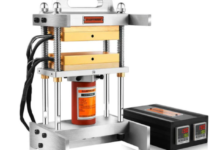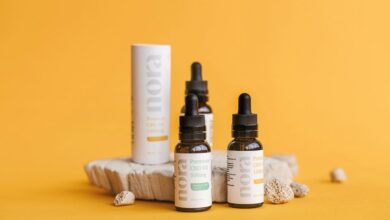Can Cbd Get You High

CBD, or cannabidiol, is often discussed in contrast to THC, the psychoactive component of cannabis. Unlike THC, CBD does not produce a euphoric high. This distinction is significant for users seeking therapeutic benefits without intoxication. The mechanisms by which CBD interacts with the body's endocannabinoid system contribute to its effects. Understanding this difference raises questions about the broader implications of CBD use and its effects on health and wellness.
Understanding CBD and THC: The Key Differences
Although both cannabidiol (CBD) and tetrahydrocannabinol (THC) are cannabinoids found in the cannabis plant, they exhibit distinct pharmacological effects that contribute to their differing legal statuses and uses.
CBD benefits include anxiety reduction and anti-inflammatory properties, while THC effects often involve psychoactive experiences, such as euphoria and altered perception.
The divergence in their effects underlines the complexity of cannabis and its potential applications.
The Role of the Endocannabinoid System
The endocannabinoid system (ECS) plays a crucial role in maintaining homeostasis within the human body by regulating various physiological processes.
It achieves this through endocannabinoid functions, which interact with cannabinoid receptors located throughout the body. These interactions influence functions such as mood, pain sensation, and immune response, underscoring the ECS's importance in overall health and its potential impact on wellness strategies.
The Science Behind CBD's Effects
Understanding the endocannabinoid system (ECS) provides a foundation for exploring the effects of cannabidiol (CBD), a non-psychoactive compound derived from cannabis.
CBD interacts with cannabinoid receptors in the ECS, influencing various physiological processes without inducing a high.
Research indicates that CBD effects may include anti-inflammatory, analgesic, and anxiolytic properties, highlighting its potential therapeutic benefits while maintaining a clear distinction from psychoactive cannabinoids like THC.
Common Misconceptions About CBD and Psychoactivity
How often do misconceptions about CBD and its psychoactive properties arise in discussions surrounding cannabis? Many CBD myths suggest that it produces similar psychoactive effects as THC, leading to confusion.
Cannabis education emphasizes that CBD is non-intoxicating. User experiences further support this, highlighting its therapeutic benefits without impairing cognitive function.
Addressing these misconceptions is essential for informed consumer choices and fostering a clearer understanding of CBD's role.
Conclusion
In the landscape of cannabis compounds, CBD stands as a serene oasis, untouched by the intoxicating waves of THC. As research unfurls, it becomes evident that CBD does not dance with the psyche but instead offers a gentle embrace of therapeutic benefits. By illuminating the path through common misconceptions, individuals can navigate the complexities of cannabis with clarity. Ultimately, understanding CBD's distinct nature fosters informed choices, allowing its potential to flourish without the shadow of intoxication.






